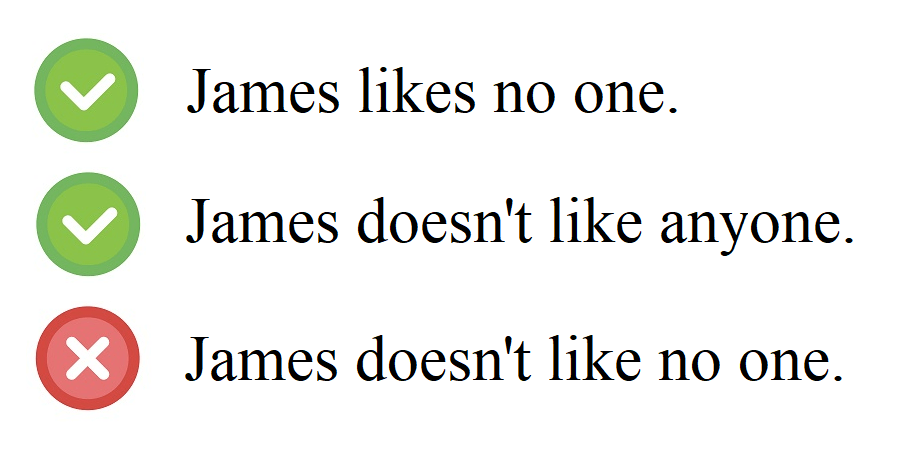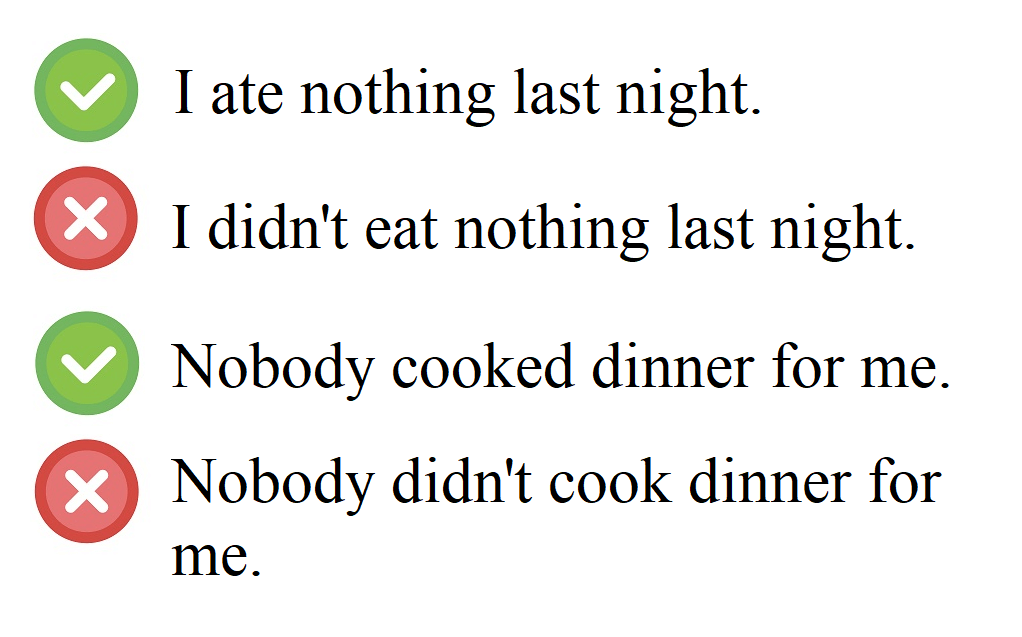Indefinite Pronouns with "Every-" and "No-"
- Indefinite pronouns with "every-" refer to all members of a group individually.
- "No-" pronouns indicate a lack of anything or anyone in a group.
- "No one" is unique as it is always written as two words to signify the absence of any person.
Understanding the indefinite pronouns with "every-" and "no-" is crucial for effectively communicating completeness or absence in English. This lesson explores these pronouns.
What Are "Every-" Pronouns?
Indefinite pronouns with "every-" include "everyone," "everything," "everywhere," and "everybody." These pronouns are used to refer to all members of a group individually.
"Everyone" and "everybody" indicate every person in a group.
"Everything" indicates every object in a group.
Note that we use the third person singular verb when the subject is an indefinite pronoun with "every". Also, note that we use "every-" pronoun in a positive sentence, NOT in a negative sentence. In a negative sentence, we use "any-" indefinite pronoun.
Examples:
-
Everyone is watching the movie tonight.
This is a positive sentence with "Everyone" as the subject. Note, the be verb is "is", not "are".
-
I love everything in this little store.
"Everything" is the indefinite pronoun.
Understanding "No-" Pronouns
Indefinite pronouns with "no-" include "nobody," "nothing," "nowhere," and the unique "no one." These pronouns express a complete absence of people, things, or places.
We use these indefinite pronouns in a positive sentence, NOT in a negative sentence.
For example, we don't say "I don't like nobody". We just say, "I like nobody.Note, "no one" is always written as two words.


Examples:
-
Nobody knows the answer.
"Nobody" is the indefinite pronoun. This sentence means "not 1 person knows the answer."
-
There is no one here.
"No one" is used as two words to indicate the absence of any person.
和AI英語導師一起練習這個主題
AI英語導師會教你文法,並以對話的形式和你一起練習。 另外,還有 100 多個有關該主題的練習題來鞏固您的理解。
在您的手機或平板電腦上免費試用 ALULA








你對這節課有任何問題嗎?請在下面的評論區提問。